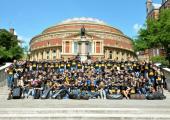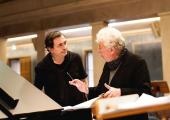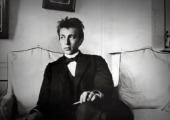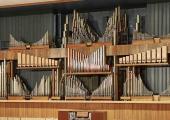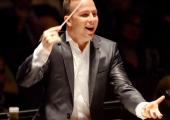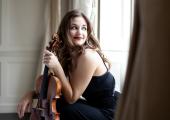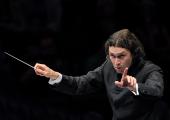Hannigan, LPO, Jurowski, Festival Hall

A splendid soprano gets lost in the desert of Lindberg’s new work, but there are compensations elsewhere
Barbara Hannigan, we all know, is game for anything. This Canadian soprano with the pearliest tones and the dramatic instincts of a Sarah Bernhardt can find beauty and meaning in almost every contemporary composer’s barbed wire. Recently she’s been cavorting on stage as Alban Berg’s Lulu; earlier this month, for a sliver of Ligeti, she paraded herself on the Barbican platform as a gum-chewing schoolgirl in a naughty micro-skirt.

